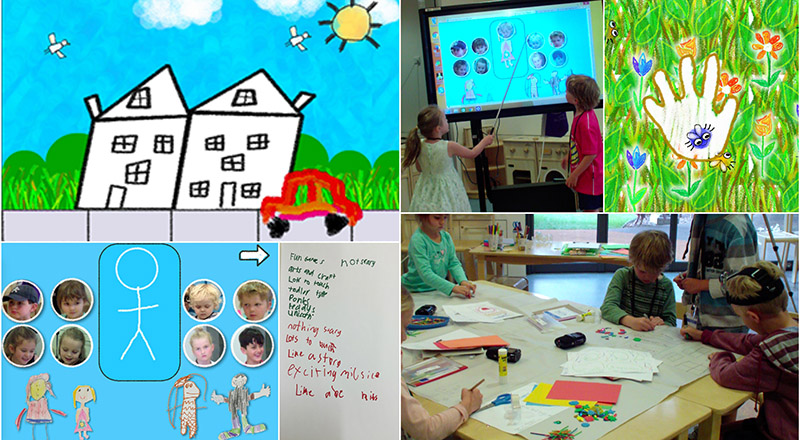February 22, 2017
App for children, created by children
Launch of interactive game for preschoolers that was developed by their peers
A group of children, working with researchers from the University of Wollongong’s Early Start, have created what may be the world’s first app for children aged 3 to 5 that has been developed and designed by their peers.
The children developed the interactive app, named “Tiny Town”, using a series of workshops to come up with criteria and to develop ideas, which they used to build a prototype. The prototype went through several iterations as the development team (aged 5-7) refined their ideas, informed by feedback from another group of children (aged 3-5) who tested it.
The app will be launched at Early Start Discovery Space on Saturday, 25 February from 1.30pm.
The app came out of an ARC Discovery Project by UOW Faculty of Social Science researchers Associate Professor Irina Verenikina, Associate Professor Lisa Kervin and PhD student Maria Clara Rivera on the role of tablet technologies in the development of imaginative play in young children. The researchers worked with 17 families and 41 children, and observed them playing with hundreds of apps. Ms Rivera then worked with six of those children to create the app.
“Most often, apps are created by adults for children, with little to no consultation with children,” Professor Kervin said. “We wanted to see what would happen when children’s perspectives were incorporated with the design of an app – what would children create for other children?”
Ms Rivera said the app was very much the work of the young developers.
“We put the children together and gave them a big sheet of butcher's paper and they came up with the ideas,’’ she said. “The app they came up with is about a town; they can walk around and choose an area to go to, such as a garden or a swimming pool, and then have interactions. For example, with the pool area they came up with a lot of ideas for pool play – diving into the pool with a splash, being a mermaid, swimming around, rowing about in a dinghy.
“We'd go back and forth and each child had different ideas. Pool play, sports, art and the town itself were all different ideas that we were then able to bring together into a whole.”
 The Tiny Town app development team at work, alongside some of the artwork they created for the app.
The Tiny Town app development team at work, alongside some of the artwork they created for the app.
Professor Kervin said the researchers took a number of precautions to ensure it was the children who directed the project.
“We work really hard as a team to get the perspectives of children and that has been at the forefront of our mind the whole way through. We’ve had to really examine a whole range of ways to collect data that represents children’s perspectives in ways that are authentic and faithful. We had video cameras, which you would normally have, but we also had cameras on the children so we could see what they were seeing from their perspective, and also hear the conversations around what they were looking at.
“We looked very carefully at the ratio of adult to child, so Clara facilitated the workshops and Irina and I were watching what was happening. We felt it was important that the children dominated. We were also careful about not asking too many questions and actually letting the children come to us with observations and insights.”
:format(jpg)/prod01/channel_3/assets/live-migration/www/images/content/groups/public/web/media/documents/mm/uow228843.jpg)